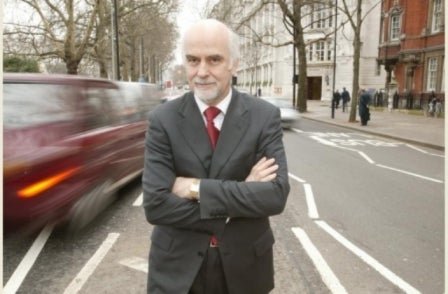
Sun columnist and former political editor Trevor Kavanagh has told Press Gazette that he does not think the pro-Brexit press played a decisive role in the EU referendum result.
And he has dismissed the suggestion that tabloid newspapers should adopt a balanced approach to reporting such issues.
Press Gazette research showed that news coverage in The Sun, Daily Mail, Express and Telegraph titles strongly favoured the pro Brexit side of the campaign in the last month of the referendum.
Interviewed by Press Gazette, for the Journalism Matters podcast, Kavanagh was asked about the extent to which The Sun reflected or led the views of its readers on the EU.
He said: “We have had a view on the EU and its grand design for a very long time and through that period of 30 or 40 years it has been matched by and led by in many cases our readership, which has been two to one sceptical compared with a Europhile audience.
“That includes everything from the origins of the single currency right through to moves towards every closer union, the Maastricht treaty then the constitution and the Lisbon treaty that supplanted that. That feeling from our readers has continued and grown if anything over the years and we would have been remiss not to represent it.
“I’ve had calls from papers in Europe about this editorialising which they regard as rather strange and it is perhaps unique to Britain that newspapers take a particular stance on a particular issue but it’s not new.
“It’s always been the case I think. We have have a very diversified press which is not the same in all other countries…
“All of them [the newspapers] express their views, not least of which has been the Financial Times which has been vehemently pro European for at least the last 20 years and has made no secret of the fact that it is partisan and has indeed lost a lot of credibility in the City because it has presented only one side, the project fear argument throughout the campaign.”
Does he think the UK pro-Brexit newspapers might have influenced the referendum result?
He said: “After the 1992 election we infamously said it was the Sun wot won it. That was probably an emotional spasm of release rather than a claim of actual impact.
“Most readers form an opinion well in advance of an event, whether it’s an election or a referendum, I think if anything it was the Remain camp and project fear which influenced people more than the Brexit campaign. I suspect that had the Remain camp delivered a more upbeat and sunny view of what life was like arguing the benefits of remaining in the European Union they would have done better.”
Press Gazette research found that in the final month of the referendum campaign The Sun published 16 front-page stories judged to favour the Leave side of the argument, versus one which was judged to benefit Remain.
Asked whether newspapers have a duty to be balanced on issues such as this, Kavanagh said: “No I don’t think so. I think newspapers should say what they think, they should reflect the views of their readers and carry through the arguments they think are the correct arguments.
“Whichever way you look at this Europe isn’t working very well. When you’ve got unemployment across Europe which is double the average rate as Britain something is going seriously wrong.
“If you look at that and say we’ve got to give an even balance to that and say there are good things about unemployment then I think you are barking up the wrong tree.”
Asked whether Sun owner Rupert Murdoch was involved in the final decision for the paper to ask its readers to vote Leave, Kavanagh said: “The Sun has had a stance on the European Union for the 40 years that I’ve been associated with it first as political editor and then as chief leader writer and then as a columnist, which has been consistent, honourable, legitimate and accurate as things turned out. It would have been wholly bizarre if at the referendum we had turned around said ‘oh well, we should stay’.”
Former Liberal Democrat MP and joint executive director of campaign group Hacked Off Evan Harris was also interviewed in the Journalism Matters podcast.
He said: “The press are entitled to be partisan and to take sides but given they have signed up to a standards code of their own creation what they are not entitled to do – according to clause one of that code – is to publish inaccurate, misleading or distorted information. It’s very clear that several newspapers, especially on the Brexit side, published information that was clearly inaccurate and misleading.
“Nobody’s arguing that there should be prior restraint in any system of press regulation but what Leveson made clear is that there had to be adequate remedy and that means that there needed to be prompt and equivalent prominence corrections. Most of those stories were not corrected and those that were were corrected in tiny writing on an inside page.
“On the one occasion where IPSO intervened, on The Sun’s famous ‘Queen backs Brexit’ banner front page headline, instead of taking ten minutes to show there was nothing in the article which would justify the headline they took ten weeks to require The Sun to print a small print version of their adjudication on page two.”
Email pged@pressgazette.co.uk to point out mistakes, provide story tips or send in a letter for publication on our "Letters Page" blog

